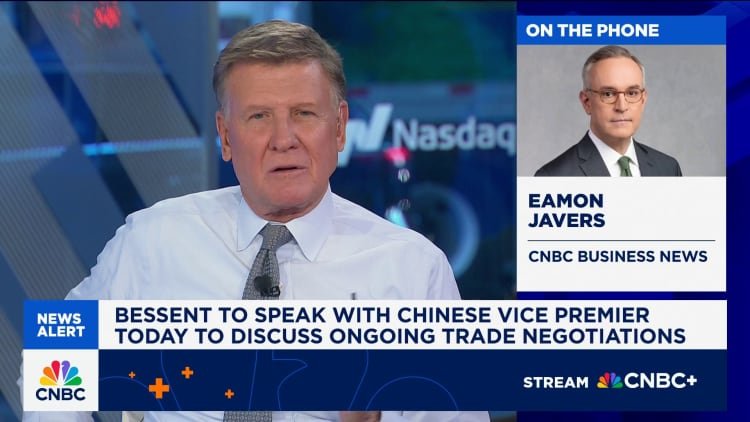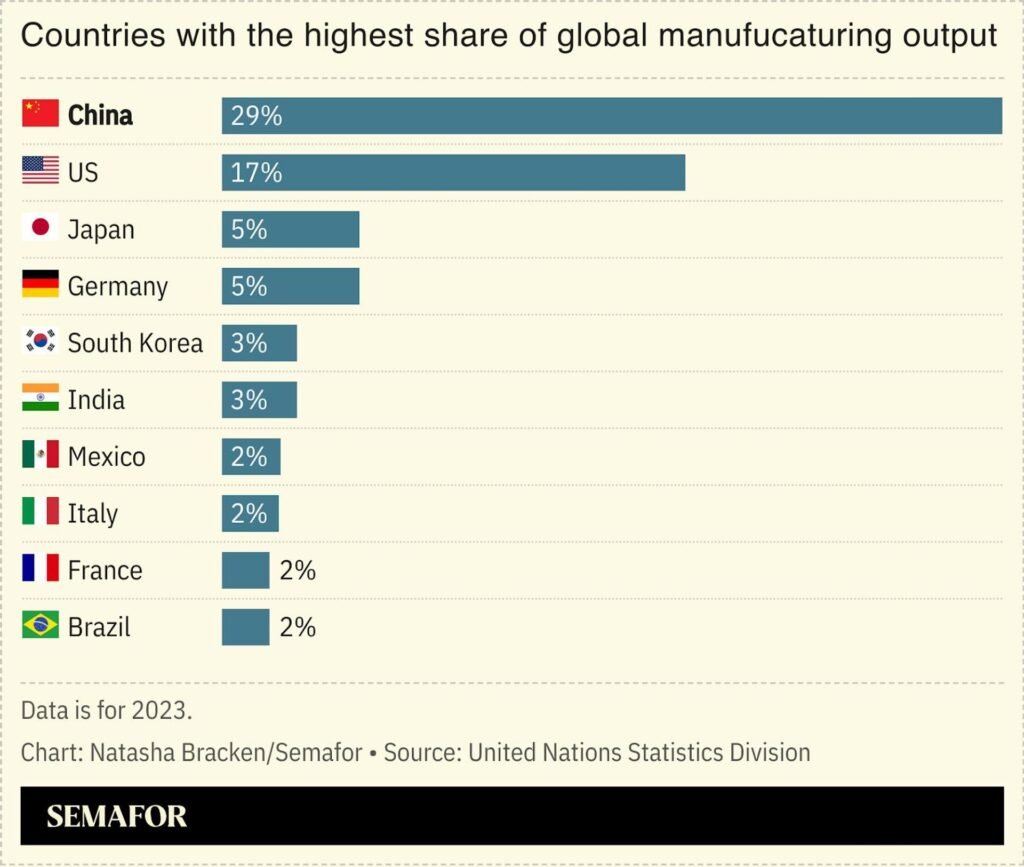The trade war that once rattled global markets has returned, and Bitcoin is part of the battlefield this time.
On Oct. 15, President Donald Trump declared that the United States was now in a trade war with China, saying:
“We’re in a [trade war] now. We have 100% tariffs. If we didn’t have tariffs, we would have no defense. They’ve used tariffs on us.”
This confirmation cements a week of tension after he threatened to slap 100% tariffs on Chinese imports.
Notably, that threat had signaled the start of a monetary standoff with ripple effects reaching deep into global markets.
As a result, traditional equities tumbled, while digital assets erased roughly $20 billion in open interest within 24 hours.
Data from CoinGlass shows that Bitcoin and Ethereum led the decline, extending what had already been one of the rare “red Octobers” for the top cryptocurrencies.
How does this impact Bitcoin?
Tariffs work like a stealth tax, making imports more expensive, raising input costs, stoking inflation, and pressuring central banks to keep interest rates higher for longer. That combination often drains liquidity from risk assets like Bitcoin.
In 2018, similar tariff announcements triggered waves of volatility that pushed Bitcoin below $6,000. The pattern is repeating in 2025.
Institutional investors are gradually shifting toward defensive positions in gold, Treasury bills, and short-duration bonds.
On the other hand, Bitcoin, which still trades like a high-beta macro asset, becomes collateral damage in that flight to safety.
Yet, the situation now carries an added layer of complexity.
Unlike the 2018 cycle, Bitcoin is no longer a retail-driven instrument but a regulated asset class with deep ETF exposure and transparent derivatives markets.
Still, CoinShares‘ head of research James Butterfill had warned in February that the immediate impact of tariffs would be “undeniably negative” for Bitcoin.
Butterfill explained that tariffs slow growth, raise inflation expectations, and spark risk aversion. In this market situation, Bitcoin reacts to liquidity trends, resulting in short-term volatility.
Already, traders increasingly believe that the chances of a continued Bitcoin uptrend are slim this month.
On Polymarket, the odds of Bitcoin hitting $130,000 by month’s end fell below the probability of it retreating to $95,000, reflecting how macro policy is dictating digital-asset sentiment.

However, Butterfill also pointed out that the top crypto recovers faster than equities in a stagflation scenario.
He said:
“In the long term, Bitcoin’s role as a hedge could be strengthened, especially if tariff policies lead to economic instability.”
Structural shift
Meanwhile, analysts at Bitunix told CryptoSlate that Trump’s confirmation has escalated the two nations’ economic confrontation and reshaped global risk appetite.
The effect, they said, is twofold: a short-term liquidity shock and a medium-term structural pivot in how capital views decentralized assets.
In the immediate term, heightened uncertainty drives institutions to de-risk. Funds rebalance toward cash equivalents and gold, sparking broad sell-offs in high-liquidity markets like crypto.
According to them, leveraged traders facing margin calls would accelerate the cascade. Notably, that is precisely what triggered last week’s $20 billion liquidation wave.
But beyond the initial turbulence lies a different calculus. If the trade war remains limited to tariffs and export controls, weaker global growth could depress crypto demand.
However, Bitcoin could reemerge as a geopolitical hedge if the confrontation extends into financial settlement systems. In this situation, the US might introduce restrictions on cross-border dollar access or payment rails, forcing investors to seek alternatives.
In that scenario, digital assets transition from “risk assets” to “alternative reserves.” As the Bitunix team explained:
“The erosion of confidence in the US dollar system could reinforce Bitcoin’s narrative as a ‘de-dollarization’ and ‘alternative value reserve’ asset, creating structural support.”








